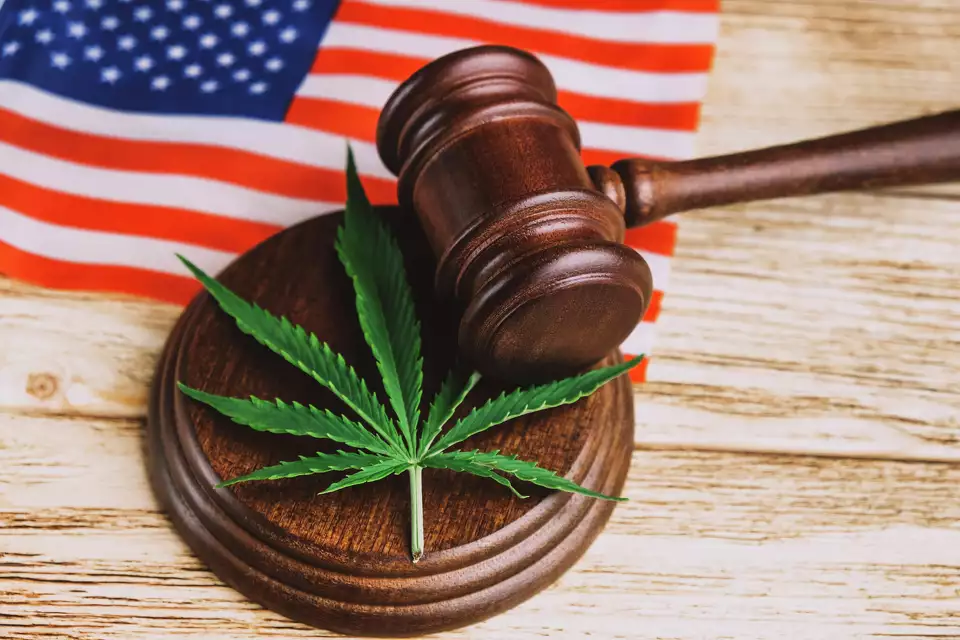The Michigan Appeals Court effectively plugged a loophole in Michigan’s marijuana laws in a Tuesday ruling, unrestricting prosecutors’ ability to pursue felony charges against individuals possessing and distributing large amounts of marijuana without a state-issued license.
The ruling stems from the case People of the state of Michigan v. Julia Soto, where the defendant was charged with felony possession of approximately 20 pounds of marijuana, alongside $10,000 in cash, with intent to distribute. Soto’s lawyers sought to dismiss the case on the grounds that the state’s recreational marijuana law, the 2018 Michigan Regulation and Taxation of Marihuana Act, prohibited felony charges.
For the past year, prosecutors across the state have been operating under the assumption that illegal growing, possession or distributing marijuana in any quantity can result in nothing more than a misdemeanor charge because of a previous ruling from the same court. State law allows for personal possession of 2.5 ounces and up to 10 ounces in a residence.
In a previous 3-0 opinion, the appeals court ruled in October 2023 that Shaaln Kejbou, who was growing more than 1,100 marijuana plants without a commercial license — and protecting those plants with a 12-gauge shotgun and dogs — could not face felony charges due to voters passing the MRTMA.
For instance, a 2023 raid in Calhoun County around the time of the Kejbou ruling involving a group of Chinese nationals importing and exporting thousands of pounds of marijuana from a warehouse in Albion, resulted in no criminal charges. The weed in question was being grown and stored in “deplorable conditions,” including mold and dog feces, according to Michigan State Police records obtained by Crain’s through the Freedom of Information Act.
“The dirty product that is infiltrating the licensed market is being sold to unwitting consumers,” First Lieutenant Tom Kish, commander of the Michigan State Police Marijuana & Tobacco Investigation Section, told Crain’s last month. “I have real concerns about organized crime coming in Michigan more than it already has and the violent crime that will follow. We’re talking multimillion-dollar operations. Once we’re talking about dollar amounts like that, people are going to get shot. It’s an unfortunate consequence of the way our laws are written.”
In the Kejbou case, a Tuscola County judge ruled — and the appeals court concurred — that the state’s marijuana laws simply made severe prison sentences not an option. The state’s voter-passed, legal marijuana laws were designed to reduce felonies for marijuana possession and growing; and came after years of what were viewed as draconian, exorbitant punishments under the state’s Act 368 of 1978. Before MRTMA, individuals faced up to 15 years in prison for possessing more than 99 pounds or 200 marijuana plants.
But the Tuesday ruling in the Soto case appears to reverse the sentiment in Michigan since legalization in 2018; agreeing that Soto could, in fact, be charged with felonies because MRTMA simply made “marijuana legal under Michigan law for personal use” and the act is also intended to “prevent the diversion of marijuana into illicit markets.” Those harvesting and distributing twice the legal limit are once again subject to the felony punishments under the Public Health Code.
“Possession with intent to deliver large quantities of marijuana for compensation and outside of state regulation implies an illicit dealing for profit or contribution to the illicit market,” the appeals court ruling in the Soto case reads. “Such conduct subverts the express purpose of the Act (MRTMA).”
The appeals court ruled that the Berrien County Circuit judge was correct in denying Soto’s motion to dismiss her felony case on the grounds that MRTMA prevents prosecution.
“While it was a fairly straightforward case of statutory interpretation, in the wake of Kejbou, the Soto decision is nonetheless important,” Doug Mains, partner at Detroit law firm Honigman LLP and co-author of the MRTMA rules, wrote to Crain’s in an email. “I expect criminal defendants will continue to explore the exact relationship between MRTMA’s penalty provisions and the Public Health Code, but the Soto case demonstrates that MRTMA did not create a free-for-all when it comes to illicit cannabis activity. The Court of Appeals was correct that this type of large-scale trafficking subverts the purposes of MRTMA, and that’s particularly true when the entire industry is financially struggling due, in no small part, to black market cannabis making its way into the regulated system.”
The average price of an ounce of marijuana flower in Michigan has plummeted 85% since the legal market opened in December 2019 to just $80.14 in August.
By upping the legal consequences of illegal growing and dealing operations, Michigan’s current marijuana oversupply could be reduced and, theoretically, raise wholesale prices and provide some financial cover to the state’s struggling operators.
It’s unclear whether the conflicting interpretations from the appeals court will result in the Michigan Supreme Court taking up the issue in from the Kejbou or Soto cases.
But Matthew Abel, founding partner of longtime cannabis defense law firm Cannabis Counsel and former executive director of the Michigan chapter of the National Organization for the Reform of Marijuana Laws, said the recent appeals court decision is the correct interpretation of the law and the Supreme Court would likely agree.
“Because MRTMA addresses only ‘up to twice the amount allowed,’ the older law addresses anything in excess of that,” Abel told Crain’s in an email. “I always have thought this would be interpreted that way. I don’t see the Michigan Supreme Court ruling any differently.”
By Dustin Walsh
Dustin Walsh is a senior reporter for Crain’s Detroit Business, covering health care with a focus on industry change and operations, as well as the state’s emerging cannabis industry. He is also a regular columnist on all things health, labor, economics and more.







